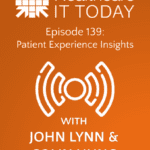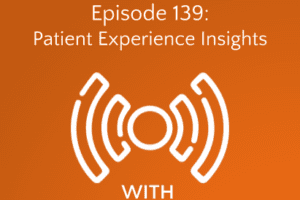The following is a guest article by William J. Hayes, M.D., M.B.A., and Chief Medical Officer at CPSI
New collaboration between mobile app developer, EHR vendor and health systems decreases clinician stress
The perennial challenge of clinical burnout has reached an inflection point. Fueled by PTSD from COVID-19, burnout is largely based on the modern human experience of constantly consuming stimuli (much of which is negative) while also being pushed to achieve higher levels of productivity and efficiency. Those that have been impacted the greatest of any group have been our physicians, nurses, therapists, and other healthcare professionals.
The human brain is not designed to withstand the stimulation and endless distractions of modern, technology-laden lifestyles. The average focus time has been reduced and attention spans are shrinking according to a recent article by CNN. The article cites Dr. Gloria Mark, a professor of informatics at the University of California, Irvine. In her comments Dr. Mark notes that “decades of research have tracked the decline of the ability to focus”. Our smartphones are often the culprit.
The introduction of the smartphone has expanded our ability to connect with others around the world, but it has also provided on-demand distractions which some researchers say has led to “brain drain”. Brain drain refers to cognitive performance being thwarted by just the proximity of a smartphone.
For clinicians, these nascent intrusions on the human brain inhibit both executive functioning and personal relationships. And declines aren’t solely a cognitive concern. Mental health is also negatively impacted by our tech-heavy lifestyles, especially within patient care.
Innovating Mental Health in Clinical Settings
Mental health is a private matter. And the scale of the problem is so massive that traditional approaches of counseling and therapy are often not enough. Of all industries in our society, healthcare cannot afford a stressed workforce. Creative solutions that are innovative and science-based are necessary to privately, with scale, improve the human experience of care delivery – and ultimately help to improve health outcomes for all. One of these innovative techniques was recently introduced by Dr. Izzy Justice, Chief Neuroscientist at Neuro580, a neuroscience-based program that teaches individuals to neuro-hack their brains throughout the course of each day to boost their brain functionality.
Dr. Justice created EQ Health, a mobile application designed as a tool to help users get their brain back to a state of “green” brain functioning – the electrical equivalent of 5-15Hz EEG. Green brain functioning is ideal for critical thinking and lower levels of stress. Inspired by the concept of “neuro-hacking,” the application incorporates user-selected images and positive memories to provide personalized cognitive reference points done in seconds and on-the-go. These neuro-hacks help to deescalate the in-the-moment stress, such as going from one patient to the next or transitioning to personal life. Here’s how they work.
Using Neuro-hacks to Reduce Burnout Risks
The personalization of the neuro-hacks creates instant efficacy. Clinicians’ brains realize prompt stress relief, long enough to perform the next task at one’s best, thus both improving the delivery of care and actively reducing the risk of burnout. Users have been known to use these same neuro-hacks in their personal lives.
CPSI – a long-standing healthcare solutions vendor in the healthcare technology sector – was particularly moved by Dr. Justice’s innovative approach to reducing clinical stress and burnout. With front line access to the clinical teams delivering care, the company made the progressive decision to offer EQ Health alongside their solution platform at no cost. Through these efforts clinicians at all CPSI customer sites have access to the application and training. The results are inspiring.
Investing in Mental Health Reaps Valuable Rewards
To date, 28 health systems have taken advantage of the offering resulting in overwhelmingly positive feedback. By privately improving the mental health of clinical teams delivering essential care to communities across the country, the initiative ushers in a new era of clinical experience that benefits the wellbeing of everyone involved.
Participating organizations report greater collaboration and awareness amongst their teams in daily work environments and meetings. Program leaders acknowledge that ‘zen’ time for employees to detox mentally and take a break using neuro methods result in higher levels of mental clarity and more to get refreshed using the neuro methods that engage patients to clinician experiences.
CPSI’s investment in the wellbeing of providers has been significant and worthwhile. It is part of their people-first culture and remains an urgent mission for the foreseeable future.
 About William J. Hayes, MD
About William J. Hayes, MD
Dr. William Hayes has served as Chief Medical Officer for CPSI since 2017. He is also an active member of the HIMSS Physician Committee and Vice Chairman of the Executive Committee for HIMSS’ Electronic Health Record Association (EHRA).













